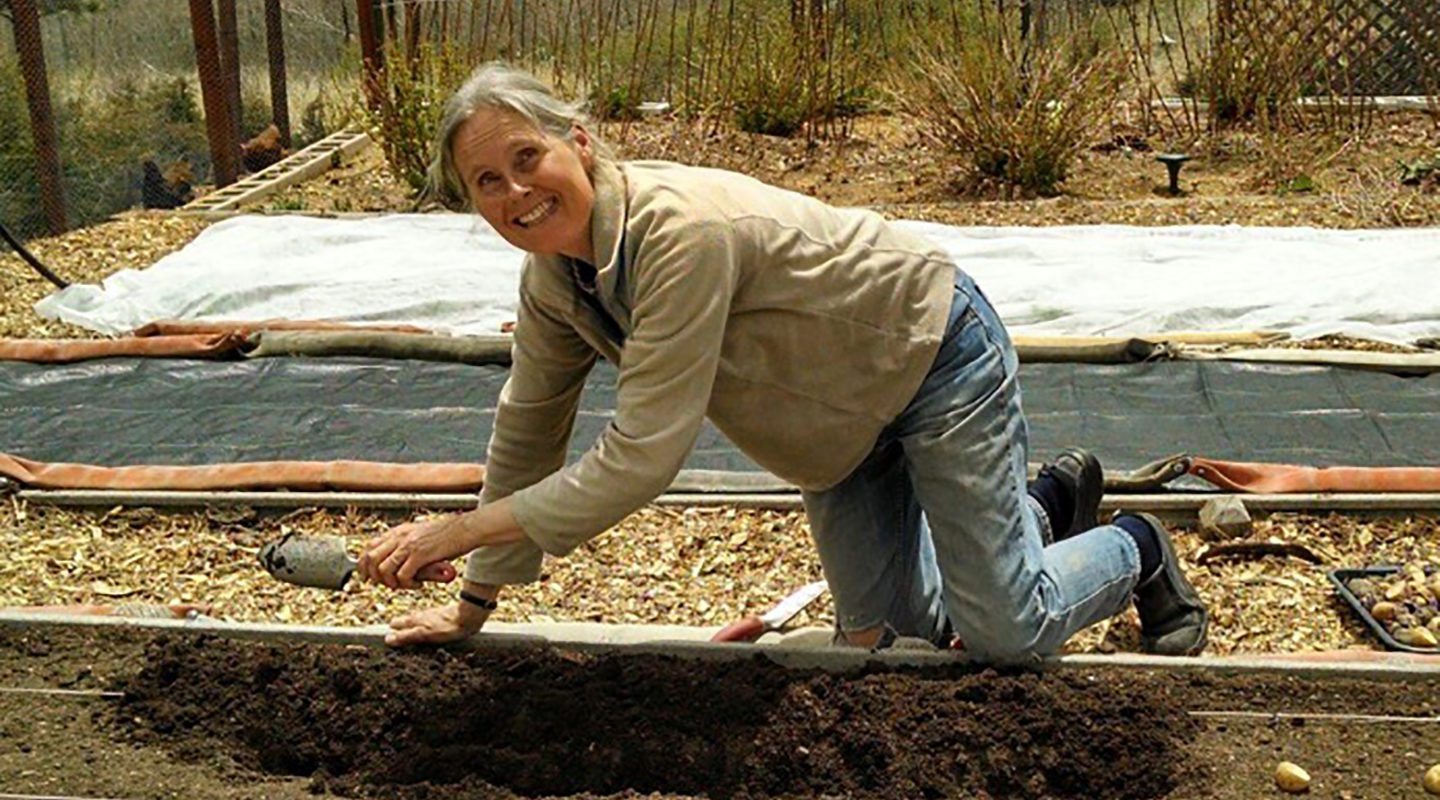Posted August 21, 2017
Double-bassist Doctor Lucy Bauer is now in her 30th season with the Denver Philharmonic Orchestra!
Born and raised in England, Lucy began learning to play the cello at the age of 8, and later took up the bass at the age of 14. Coming from a large family, she found that learning the double bass was a way to be unique — her siblings and friends mostly played the piano, and only Lucy took on the large-and-in-charge stand-up bass. Aside from helping her stand out, the instrument led her to be in demand in many youth orchestras and semi-professional (often adult-only) ensembles. Taking the stage musically helped her to overcome a sense of shyness, and while she was a self-described “introverted scientist-to-be” she found affirmation in music.
Despite an ongoing passion for music, Lucy chose to pursue biology in school. She remained musically active throughout her academic career, a move which ultimately led her to meet the man who would become her husband, Dave. He played first trumpet and walked the same route from college hall to rehearsal hall for regular practice sessions — it was on those shared works that a romance was born. He attends every DPO concert and always enjoys them, and is Lucy’s greatest fan and a continuous supporter of her musical pursuits.
A lifelong invertebrate enthusiast, Lucy studied biology centered around bugs and insects, eventually earning a doctorate for her study of beetles in reaction to their environments. A mother of six, Lucy has encouraged (but been careful not to force) all her children to study music as well. While she also hoped her love of bugs and creepy-crawlies might also somewhat rub off on them, most have chosen other paths and pursued other interests, but music remains a shared love of the whole family.
Lucy lives in Bailey, Colorado, in a cabin that she and her family built from scratch. It is off-the-grid, powered entirely by wind and solar energy (with a backup generator for ‘just in case.’) Her cabin home allows her frequent and close encounters with nature. One of nature’s great appeals for her is the quiet and solitude that can be found outside of human interaction. Like music, the sounds of nature can set a mood and style a setting in a way that can be more impacting, more deeply moving and provocative, than any words.
Lucy aligns her scientific and musical passions eloquently. “I think that playing the double bass has given me a creative outlet and sense of grounding that has underlain most other aspects of my life, including my career,” she says. “My passion to be a naturalist of some sort preceded any musical education I received, and yet I think the two pursuits are closely intertwined and each infuses and enriches the other. The double bass is not a flashy instrument and rarely gets the melody in an orchestra, often acting more like tuned percussion or a back-up of the cello and bassoon lines, but it is vital for the overall depth and richness of orchestral music.
“There is a place in life for people like that too — dependable, supportive, the true bottom note on which the harmony of an organization is built, essential but not always noticed until not there one day, and just occasionally full of surprises when life (like an inspired or playful composer) decides to write an unexpected solo into the script. That is the type of person I strive to be, and playing the bass has been integral in showing me the way.”
